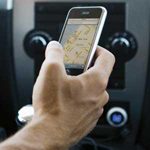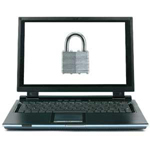The State and Local Government's Guide to Mobility
Mobile computing represents a major technology opportunity for state and local governments. Mobile devices can help government employees boost their efficiency and productivity while allowing citizens to engage with government in new ways.
Many state and local governments recognize the chance to save taxpayer dollars while improving productivity and are rolling out "bring your own device" programs that allow employees to log on to government networks with personal devices. Despite requiring some resources in the initial stages, BYOD is proving to be successful for government agencies and their employees. It’s the way of the future, according to Terry Bledsoe, CIO of Catawba County, N.C.:
As people experiment with their smartphones and tablets, they are discovering all kinds of tools that they then want to use to improve the way they and their colleagues do their jobs. So if you can foster an environment where people can readily share and take advantage of their discoveries, you can achieve significant improvements in efficiency and performance.
Read more about the potential of mobile devices in the hands of government employees:
Counties Forge BYOD Policies
Initiatives address the security and management issues associated with employee use of personal mobile devices for work.

Mobile-Device Management Helps IT Secure Smartphones
Tools aid deployment and support BYOD efforts.

Five Security Tips to Lock Down Your BYOD Environment
Take these pointers to protect your organization's data.
Mobile computing provides opportunities for improved service as well, with some local governments deploying mobile apps for their citizens. Take, for example, Riverside, Calif., which was struggling to deal with 33,000 calls to its 311 hotline each month. The city didn’t have the resources to manage so many incoming calls, so it released a mobile app for iOS, Android and BlackBerry devices. Now, citizens can report problems such as a downed tree or pothole by submitting a ticket through a smartphone. Steve Reneker, CIO of Riverside, believes that the app is helping more than the bottom line:
The app has helped the city be on top of these issues, and it's empowered our citizens to help clean up the city and make it a better place to live.
Read more about how local governments are using mobile computing to engage with citizens.

How Local Governments Are Taking Advantage of Mobile Apps
States and cities develop mobile applications to better serve residents.

Why Mobile Apps Keep Florida Foster Children Safer
Mobile applications ensure timely data capture for state and local agencies.

Transit System Taps Tech to Ease Commutes
Dallas Area Rapid Transit makes schedule information available in real time to riders.
If you are looking for more information on mobility in state and local government, follow our coverage on Twitter.









